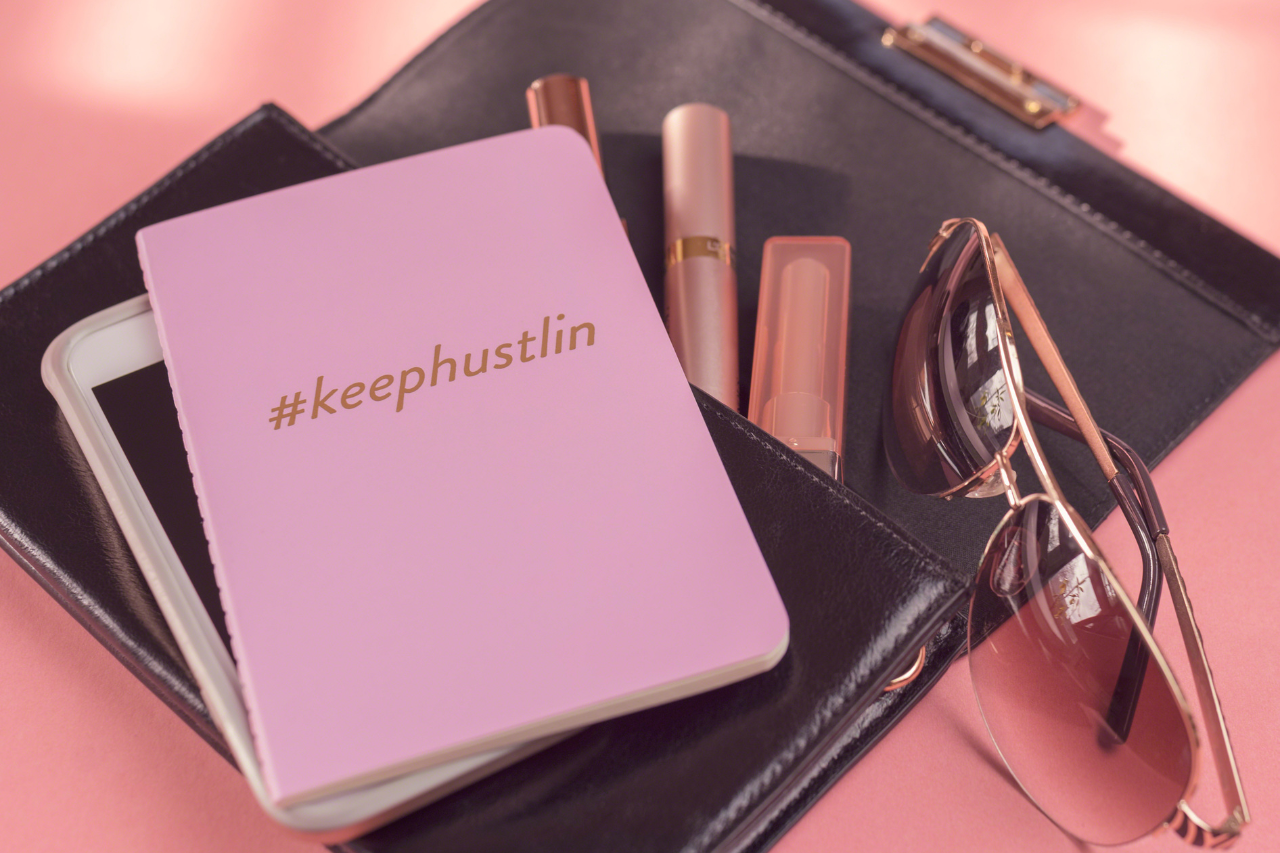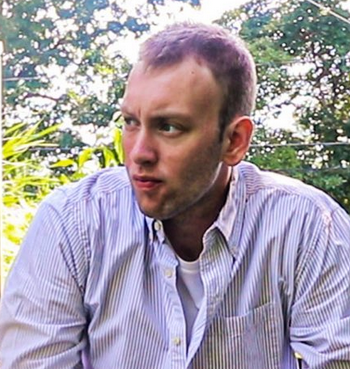
written by JOSH FENTON
The term and idea of hustle culture has been on the rise for the past few years. We’ve been told that if we continuously grind all hours of the day, success will inevitably come our way. Time off is a big no-no—that’s just laziness. Work becomes the center of our lives. As exciting and motivating as this idea can be, there’s also a dark truth lurking underneath the term—one that leads to burnout and a toll on your well-being.
Many famous people have purported the message of hustle culture. In a 2018 New York Times article, Elon Musk said that his work weeks would sometimes exceed 120 hours, which averages just over a 17 hour work day, 7 days of the week. Gary Vaynerchuk—aka Gary Vee—says he sometimes works 20 hours a day, and stated that even if you are working a 9-5, there is still plenty of time left in the day to start a side hustle or business. “You have to decide if you want to go for it or not. 8/10 times a person may take a step back and think their leisure time is more important to them than building their own life.”
It can be facile to look at individuals who have had exceptional levels of success and think that working every waking hour and sacrificing as much as possible is the best way—the only way. Unfortunately, though, this mindset isn’t as glamorous or productive as it seems. Keep on reading to learn the dark truth about hustle culture, the myths and dangers of it, and what you can do to stop yourself from falling victim to it and avoid burnout.
The dark truth about hustle culture:

The myths and dangers of hustle culture:
We live in a society where people brag about how much they work. “I worked 75 hours last week.” This stigma is something that I’ve personally always found as a flaw in society. It’s something I don’t think many people are even aware of, either.
Myth: the more you work, the more you accomplish
A study conducted by a professor at the University of Stanford concluded that after a certain point, productivity and output begin to decline. For example: if you have not eaten in 2 days, and I give you two large pizzas, the first few slices will taste heavenly. However, by the 12th slice, that taste will lessen.
This analogy relates to a term in economics called “the law of diminishing returns.” In other words, by continuing to add additional factors of production, the smaller the increases you are going to see in output. Basically, in the scenario mentioned above: the more pizza you eat, the less satisfaction you will obtain.
──More days and hours worked ≠ higher output──
The study also conducted that on average, after employees work 48 hours per week, they begin to become a victim of the law of diminishing returns. If you are working 48 hours a week or less, output will be proportional to hours worked.
However, if companies were to increase scheduled work hours to 50 hours, the law of diminishing returns would kick in. By the time the work week exceeds 60 hours, these schedules are classified as ones that consist of “decreased productivity and increased absences, accidents, and labor turnover.” Not only that, but those who work all 7 days of the week will also see a 10% decline in output. Essentially, you’re overworking yourself for diminished returns.

Danger: it can take a toll on your mental health
Baruch College conducted a study and found that individuals who are classified as “workaholics” are more likely to report more psychosomatic and mental health issues than “non-workaholics.” It’s disappointing to see people become “workaholics” and overwork themselves, mainly because their actions stem from a genuine place of wanting to get ahead and succeed in their career and life.
Ironically, this study also stated that these people, along with people who strive to partake in work that makes them fulfilled (passions, visions, etc.) are those at the highest risk of falling victim to hustle culture and burnout.
Danger: you work yourself into exhaustion and it backfires
There’s a reason the saying “work smarter not harder” has garnered so much popularity lately. There is absolutely nothing wrong with working hard, but when you’re overworking yourself into the point of exhaustion, that’s when it becomes a problem. You decrease your productivity, and end up running yourself into the ground.
Oftentimes, this is when people decide to take a break and stop and smell the roses; they even enjoy it for a little while—that is, until they try to go back to work. Suddenly, the vision they once saw so clearly isn’t there anymore. Getting back to it is no longer a priority, and it’s an insurmountable task. They’ve become so burnt out that they’re unmotivated and turned off by the idea of going after what they want.
RELATED STORIES
How it’s easy to fall victim to hustle culture:
When you’re working on something that genuinely excites you and you’re passionate about, you want to work on it. You don’t mind the late nights and early mornings, the hard work doesn’t bother you. It all seems worth it because you’re chasing what you want.
My entire life, I have grinded. From working 6 days a week for several years—with many of those shifts being 16 hours—on top of being a full-time college student, I am one of the biggest proponents of hard work. Even now, I’ll turn down a lot of opportunities to see my friends and partake in things I really enjoy in order to work on work-related projects.
That being said, when people say, “You need 10,000 hours to become an expert on something, you might as well chip away at it as much as possible.” My response is this: does it really matter if you’re an expert at something, if you’re so burnt out you don’t even want to look at it?

My tips for productivity and avoiding burnout:
I am no exception to burnout. Sometimes I may feel I am invincible, but I’m a human being, and human beings have their breaking points. Sure, some may have a greater threshold than others, but rather than reinforcing the idea that every waking second needs to be used for maximum productivity, why not try to get the most out of your time?
Create deadlines for yourself
Parkinson’s Law states that work will expand to fill the time allotted for its completion. If you have an essay due in two weeks, you’re most likely going to finish it a few days before it’s day. On the other hand, if you only have one week to finish that same essay, you’re probably going to finish it closer to the due date. a day or two before it’s due. And why is that, what changed? The deadline.
Whenever someone has a deadline that extends into the future, they tend to fill their calendar with tasks they don’t even realize could be classified as minuscule. These are things that would fall under the category of “busy work,” such as cleaning, calling up an old friend, etc. And while those things are important and should get done, they are also things that can be put to the back of your to-do list if you’re on a deadline.
Deadlines are motivating. To maximize productivity, be sure to set deadlines for yourself. Doing this will help you stay more organized, make better use of your time, and free up your schedule so you can partake in things you enjoy.
Start on important tasks first thing
When you wake up in the morning, your body is going to be as free of adenosine—an organic compound that acts as a self-regulator of sleep—as it can be. As the day goes on, adenosine continues to build up in your brain, which makes you more tired and less motivated. This typically leads to the classic “I’ll do it tomorrow.” Starting in on your most important tasks first thing in the morning can help prevent this from happening.
The way I like to look at it is that everyone has a little sandbag that has a hole poked in it first thing in the morning. However, throughout the course of the day, that sandbag continues to become more and more empty, until all the sand has fallen out—or, in other words, until it’s time to go to sleep. Make sure to get the most out of your sandbag while it is full, first thing in the morning.

Prioritize accordingly
On top of that, prioritize the tasks that are really important to you.
“Make a list of 25 things you want to do in your life. Now do the top 5. Never think about doing the other 20. They take time away from the 5 that really matter to you.” —Warren Buffet
Let’s say for the sake of this article that there are two people who both have 5 years to dedicate to their passions and interests. Person A spends their 5-year timeline dividing it up across 10 different areas of interest, while person B focuses on the area of interest that’s most important to them. After 5 years, person B would be significantly better and further along when compared with person A. This is because person B focused solely on one thing and honed in on it, while person A divided up their attention.
Time is such a finite resource that people take for granted, and you do have more time than you think. When you think about it, where is your time really going? Sometimes people find themselves in situations where they’re pressed for time. If this is repeatedly happening with you, it may be because you’re spreading yourself too thin.
If sports aren’t important to you, don’t watch them. If cooking isn’t that important to you, meal prep. If cutting the lawn isn’t that important to you, hire landscapers. I like to picture myself as a CEO and my hours as my employees. How can I put my hours in a day to best use, so I can get the best return on investment out of my time?
I encourage you to make the list Warren Buffett talks about above. It will truly be eye-opening and give you insight into how you’ve been spending your time. If you truly want to become great at something, you are going to need to prioritize it and double down on it. Put your time towards the things that truly matter, whatever those things are for you.

In conclusion…
Humans need time away; they need to relax, have fun, turn their brain off, be a potato, etc. Are there people like Elon Musk who can work 25 hours in a day, 8 days of the week? Absolutely. Are you one of those people? Probably not. And guess what? That’s OK.
If you’re reading this and thinking something along the lines of: This is complete garbage, I can definitely handle that schedule—be careful. It’s important to keep in mind that falling into this line of thinking could lead to burnout, and it may take a toll on your mental health.
Remember: there is no need to fall victim to hustle culture just because it’s what society preaches. Don’t feel like you have to miss every single birthday, holiday or wedding, or that you have to work 20 hour days just because Elon Musk and Gary Vee do. At a certain point, you are only going to see marginal increases in your output.
Make the most of your time that you have available to work, and set aside time for yourself to have fun and explore. Don’t get caught up in all the distractions that are not important. At the end of the day, the most important things in life are the things that are most important to you and you alone.

Josh Fenton is a full-time data analyst at Care New England, who completed his undergraduate degree from the University of Rhode Island in 2018, and received his Master’s of Public Health from the New England Institute of Technology in 2020. He spends his work days writing research papers, (soon to be published on PubMed!), and analyzing population data, looking for health disparities in different races and ethnicities. In his free time, Josh creates content on his YouTube channel revolving around finance, productivity, and personal development. He says, “Even if nothing ever comes out of all this content I’ve created, if I can help at least one person, it is worth it in the end.”
Follow Josh:
DISCLAIMER:
The information in this article is intended for informational purposes only, and is not a substitute for medical or professional advice. Always consult a physician or any other professional health care provider regarding any health or wellness questions you may have, and before beginning or trying a new health, lifestyle, or wellness regimen.





Great read! I’ve been there, overworked, too many clients in a week just to meet goals I had set. Burnout is no fun and harder to come back to work afterwards. Great tips! Thank you for sharing!
Author
You’re so right—burnout makes it way harder to get back to work again, and once you’re burnt out, you end up needing longer to recover. Work-life balance is key! Thanks for the feedback, and thanks for reading!